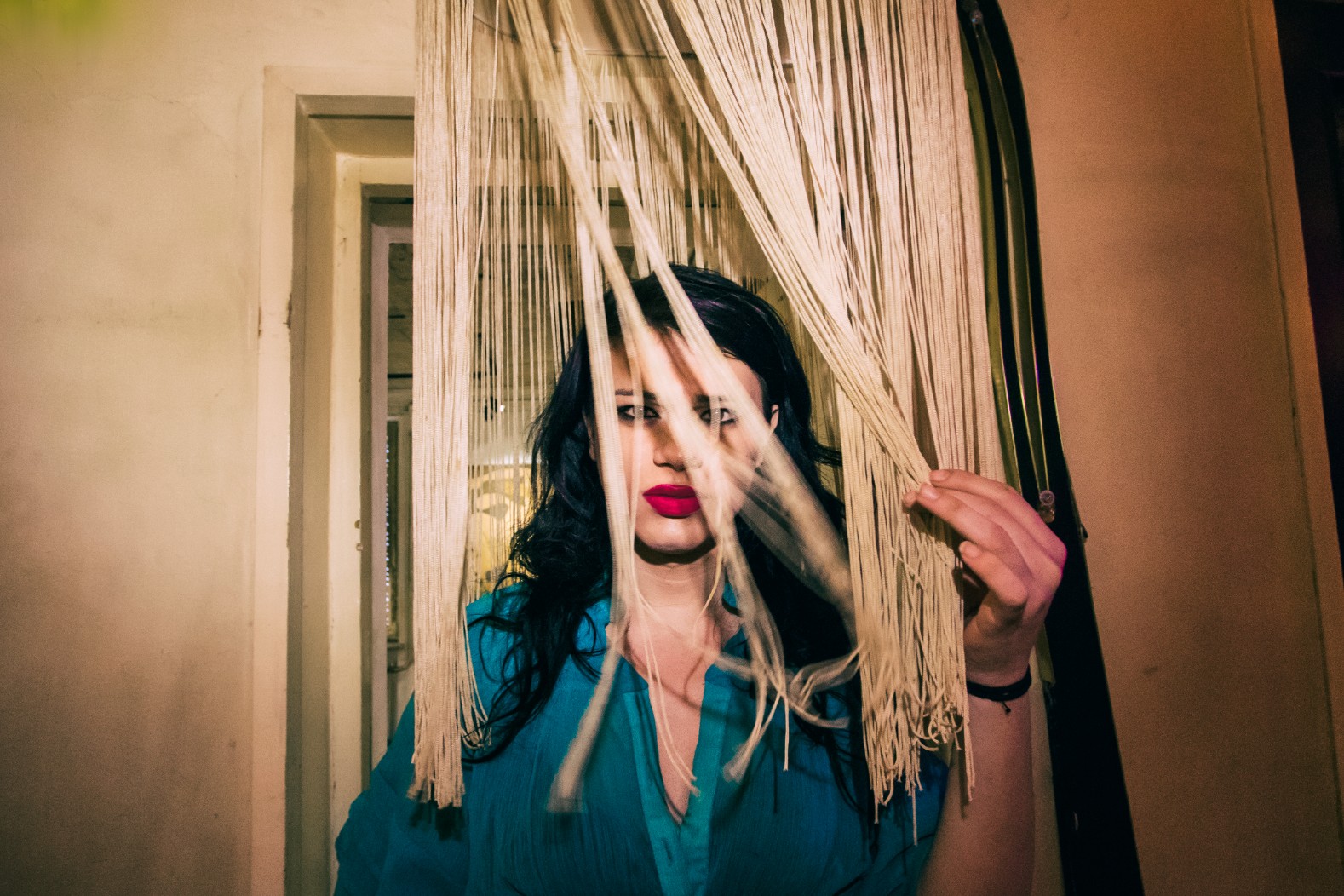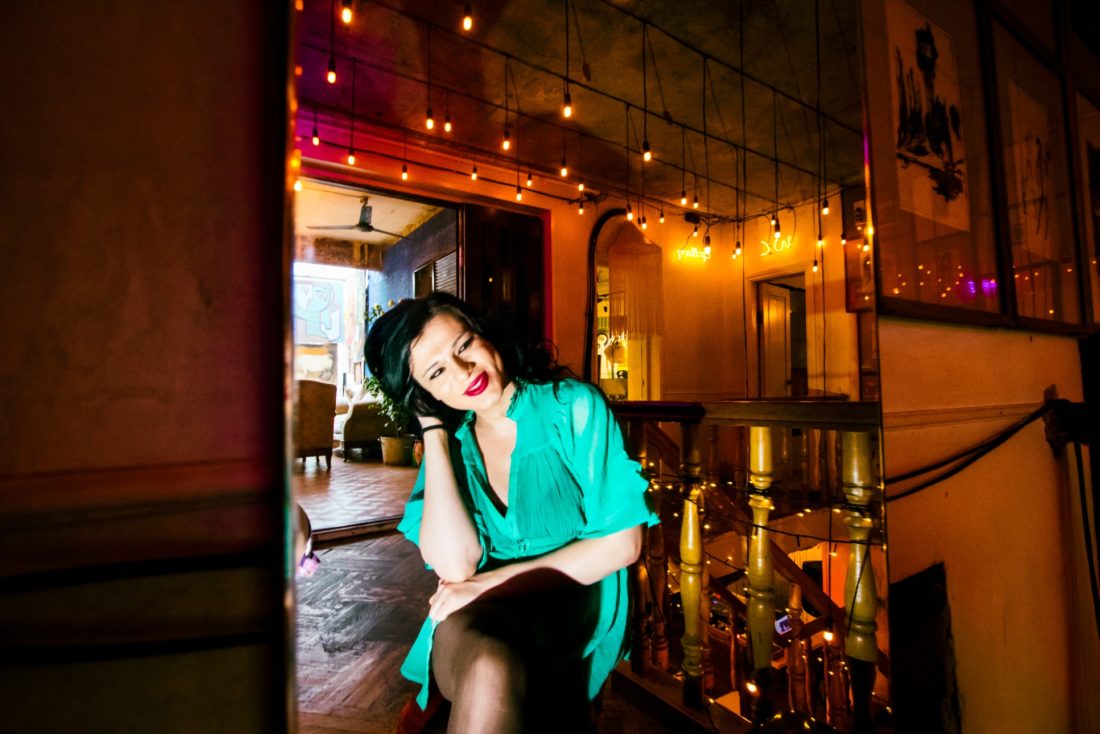Miranda Paghava, 23 years old, Tbilisi
Since very childhood, I’ve always seen myself as a girl. Except for boy’s name, I could see no difference between other girls and myself. By the age of 11-12, I started considering seriously about who I was. Because of the homophobic environment around me, I was heavily depressed and thought of myself as a wicked person, having a pretty low opinion of myself. Although, after some time I realized that there was nothing horrible and shocking about me being transgender.
School
Even as a kid, as long as I remember myself, I was feminine and used to play with dolls. Having had similar interests with girls, I had girlfriends and have sweet and fond memories of that time until the age of puberty. Reaching the age of 11-12, when girls and boys interests become very distinct, problems started at school. I was different from my male peers. They were interested in football, fighting and would talk about things I would find uninteresting and dull. Brawls have never been my style. I preferred playing with girls to whom I could always chat about fashion and clothes. I have never had problems with girls. On the contrary, I remember them defending me against the violent attacks of the boys, standing up for me and even had confrontations in the class because of me. At school, I was having problems with teachers too. Once, on entering the classroom, I overheard one of the teachers fueling hostility towards me amongst my classmates.
 Family
Family
I was 8 when my father died. Ever since early childhood, my mother remembers me looking like this. She often used to see me in a dress. Every time she wasn’t at home I put on a dress. At first, she had objections naturally, but later on, she somewhat got used to it and realized fighting didn’t make any sense. We used to live in a two-storey house with a wooden floor. I was always upstairs wearing high-heel shoes. Mom used to warn me not to wear high-heels while neighbours were there, she said they would hear clattering. She didn’t have anything against me, the only thing that worried her was other people seeing or hearing about it. Actually, when I came out to my mother her problem wasn’t me being and living as a transgender, but what neighbours and relatives would say; “You have a younger brother, so why ruin his life as well? Leave Georgia and do what you like to do there” she said. It is not a transgender woman that is unacceptable to her, but she’s afraid of society’s response.
In the beginning, I had a few arguments with my brother too yet today he is my biggest defender in the neighbourhood or with the relatives. Once, I remember, I was 16 and still going to school, when I pierced my ears. Local loafers came to our house and were calling me over, probably to beat me. Although my brother is younger than me, he went out and confronted them with “It’s nobody’s business what is he up to. He’s my brother and those having a problem with him can go off me too”. You know, when your family supports you, society is more or less forced to get used to it. But if your family neglects you, everybody will screw you up.
My brother’s such an attitude is probably due to the fact, that it was entirely on me looking after and taking care of him when mom had to work all day. I even used to go to parent’s meeting, cook and help him doing his homework.
Now, I don’t go to Poti anymore. After the demonstration on May 17th my relatives found out about me and it has put a strain on my relationship with my mother. Though every now and then I skype my brother, who lives in Turkey now.
Present state
On my ID card, my name is Miranda. There is no problem with changing a name. They’ll write what you tell them to write. You can only change a name once though. The problem is to change sex designation where they ask for the legal document of sex reassignment surgery. In Europe, having psychiatrist’s diagnosis of gender dysphoria, it is possible to change the sex designation on ID. A week ago, when I applied to the ministry of justice for changing the sex designation on ID card and met a flat refusal, I asked based on which law they were refusing me. I didn’t get an answer. This issue hasn’t been regulated by law. An underlying cause of this refusal is just this ugly practice. There is also Venice commission opinion that sex designation on ID card must be performed based on psychiatrist’s diagnosis. Currently, there are cases of three transgender men in European Court of Human Rights. I’m sure we’re going to win these cases. To me it very important my ID card not to show “male” as a sex designation. If I show you my ID, you’ll see my exact photograph of how I look, female name and “male” as a sex designation. It’s nonsense. If I wasn’t sure I am a woman, I would never change my name. This is my life. I didn’t wake up one day saying “hey, I want to be a woman – let’s change my name”. This is me!
 Apart from huge difficulties transgender people are facing in receiving different services such as police or medical institution, there is an insoluble employment problem. First of all, employment problems are due to the fact that many of transgender people were not able to receive an education. I’ve been lucky. I had a support from my family, I received higher education and now I’m employed in EQUALITY MOVEMENT. However, most of the transgender people are kicked out of their homes at the age of 14-15 and are forced to struggle for survival. Our country hasn’t even developed to the level that would allow a transgender person to work, at least, in a café or restaurant and not become a sex-worker.
Apart from huge difficulties transgender people are facing in receiving different services such as police or medical institution, there is an insoluble employment problem. First of all, employment problems are due to the fact that many of transgender people were not able to receive an education. I’ve been lucky. I had a support from my family, I received higher education and now I’m employed in EQUALITY MOVEMENT. However, most of the transgender people are kicked out of their homes at the age of 14-15 and are forced to struggle for survival. Our country hasn’t even developed to the level that would allow a transgender person to work, at least, in a café or restaurant and not become a sex-worker.
I prefer the society to see and perceive me as having a strong personality rather than a victim. It is not my style to speak from a position of the oppressed. On the contrary, I’m not begging for something, I’m asking for it. I am an individual, I have my rights and I fight for them.
Am I asking for everyone to love me?! No. I just want the people who don’t like me to leave me alone. I have my circle of friends – people whom I really get along with. I want the society to let me live. That’s all.
Author: Nino Gamisonia
Photo credit: Nino Baidauri
Translation: Nino Suramelashvili

